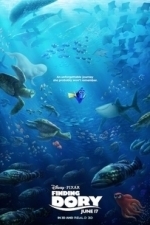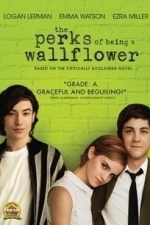Gareth von Kallenbach (980 KP) rated Finding Dory (2016) in Movies
Aug 6, 2019
In this installment, it is Nemo and Marlin who help Dory locate her family. Though it has been thirteen years since the last film, we are transported right back to where the action left off. A year has gone by after Nemo (Hayden Rolence) and his father Marlin (Albert Brooks) were reunited with the help of a very loving yet very forgetful Dory (Ellen DeGeneres). She begins to dream of memories she once had with her parents. At first we get to see an extremely adorable tiny Dory. Her small voice but big loving and outgoing personality will make your heart melt. Dory’s parents helped guide her through life all while they also had to learn to cope with her impairment. When snippets of these memories begin rushing in, Dory sets out to try and reunite with her parents. With the help of some old friends, their path leads the trio to the Marine Life Institute of Morro Bay. This is where she and her parents once called her home. On the way the trio meet a bunch of new characters. My favorite of these newest members is Hank, a seven tentacled octopus who can camouflage and escape out of pretty much any situation, proving that he is probably the best sidekick for the task. The cutest new additions are a gang of cuddling otters that can stop traffic with their cuteness.
The film in a whole was brilliantly thought out and well conceived. Little did we know that the comedic situation of Dory’s impairment in the first film would become the core of her story in the second film. Though I’m not a fan of Cars and or The Incredibles, I am still a fan of Pixar and the ideas they create. Especially that of the short film prior to the showing of the main film entitled “Piper”. Pixar certainly has a way with bringing up issues of disabilities, weaknesses and problems within our world today. This makes it easy for film goers to relate to the stories that they tell and find deep meaning in the overall outcome of the story. Finding Dory is filled with all the emotions that make up a fantastic film. Perfect for every age and is best seen with the 3D option. I adored this film and I think I just might have to see it again in theaters when it comes out. Also be sure to stay after the credits!
Gareth von Kallenbach (980 KP) rated The Perks of Being a Wallflower (2012) in Movies
Aug 7, 2019
Charlie has a tough time making friends being shy and introverted. This definitely doesn’t help on his first day when the only friend he makes is his English teacher Mr. Anderson (Paul Rudd, I Love You Man). Though in his shop class he notices one very outgoing yet somewhat flamboyant senior Patrick (Ezra Miller) who ends up taking Charlie under his wing and inducts him into “the island of misfit toys”. Charlie becomes enamored with a pixie haired beauty named Sam (Emma Watson, Harry Potter) who is Patrick’s step-sister. She is involved with a college boy but soon finds that the path she is on will soon lead down a different direction, possibly with Charlie. Though Charlie is a freshman and has never been able to feel close to anybody, his new group of friends become somewhat of a family and together they are able to overcome the struggles that adolescents are faced with today.
This film is full of great actors with appearances by Joan Cusack, Tom Savini and Nina Dobrev (The Vampire Diaries) and many others. The film hit kind of close to home as I, and many others, I’m sure, can relate to some of the same issues that had to be faced. That is why this is such a great film. I suppose that is why the story was so moving to me. I almost had a small case of anxiety remembering my high school days as a “wallflower” or a “misfit”. While the story is a roller coaster of emotions it is very well paced and has an amazing soundtrack that follows the story. The film will bring a lot of different emotions to the surface and will tug at the heartstrings which all great films must do. I usually take notes during a film that I am reviewing and at certain times I noticed myself not writing anything as I was entirely enthralled with the film. The acting is great and portrays all the characters of the story very well. This was a great film for Emma Watson to grow as more of a dramatic actress as apposed to her role as Hermione Granger though at times you could hear her British accent come through. This film is a must see! PG-13,103mins long.
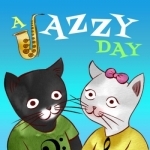
A Jazzy Day - Music Education
Education, Music and Stickers
App
Does your child know what a tenor saxophone looks like or what a big band sounds like? This top...
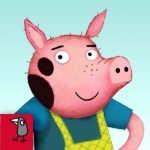
The Three Little Pigs by Nosy Crow
Book and Games
App
*** Major new update! *** A brand new, trilingual edition of our award-winning The Three Little...
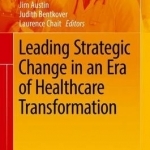
Leading Strategic Change in an Era of Healthcare Transformation: 2016
Book
This book focuses on how to lead transformative and strategic change in the healthcare industry in...

Yatzy Ultimate - Best Dice Game - roll & win
Games and Entertainment
App
The most addictive dice game you can ever play! Refresh your childhood memories with this all-time...
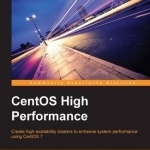
CentOS High Performance
Book
Create high availability clusters to enhance system performance using CentOS 7 About This Book *...
Eleanor Luhar (47 KP) rated The Outs in Books
Jun 24, 2019
Just gonna quickly put a little trigger warning in here, as there is graphic and emotional descriptions of depression and suicide. But the story isn't about these things, and they aren't properly talked about until far later in the novel.
You're thrown right into the deep end from page one, having to put the pieces together as the plot progresses. We meet one of our protagonists, Caleb, in an unfamiliar room with mysterious men and a random little girl. He ends up taking her with him as he runs, trying to figure out what he did during the Outs.
The Outs are kinda confusing. They're moments in time where electrical appliances all fail, and anything that happens is forgotten as soon as the Outs end. Oh, and anyone killed during the Outs is resurrected from the dead.
I'm really not sure how to describe this book. The plot is super confusing - Caleb and his aphasic friend, Kitzi, take this weird little girl (Amanda) who somehow has powers over everyone and everything, in an attempt to stop Deeds and his army of Deadheaders. Caleb has a psychopathic voice in his head called Crimes, Amanda's dreams come true, Kitzi's suicide happens to have taken place at the same time the Outs started, she can smell the truth - and somehow they're all connected to the Outs? These three individuals - and many others along the way - each have a big part in what is happening. But how?
Honestly, I cannot explain it. There are so many little ties and strings throughout this book that all add up, and I couldn't possibly include them all.
It definitely is a unique book. The idea is pretty good, too - the whole "nightmares becoming real" and all. But I just didn't connect; I don't know if it was the pacing or what, but I just didn't feel involved in it.
I feel like I should've been able to sympathise with the characters more - they had good backstories, emotional and family issues that different people should be able to relate to. And the narration following Kitzi often makes references to comic books which I personally really appreciated. But I just didn't quite feel them. Maybe it's just me - there's nothing wrong with the writing in particular, so maybe it's just personal preference. I don't know.
I had a few typos in my copy but I received an ARC, not a final copy, so that shouldn't affect anyone buying the book. I loved the cover, and the art at each chapter start was great. Also, the inclusion of "Notes From Last Night" (a site where people recorded notes during the outs for after they forget) was awesome, too. It added a whole other dimension to the world, an extra little bit of interest.
I wanted to like this, I really did. And I didn't dislike it - but it didn't feel like anything special to me. 3 stars for The Outs.

ANZ goMoney Australia
Finance
App
ANZ goMoney® is our multi award winning^ mobile banking app that makes it easy to keep track of...
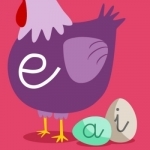
Learn to read and write the vowels in Spanish - Preschool learning games
Education and Games
App
It is so easy to learn the vowels in Spanish with this app. It has lots of fun games. It is very...
